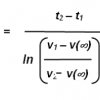This is the problem of unfalsifiable arguments
Well, some unfalsifiable arguments are fruitless (God exists, but doesn't want to be known, and is all-powerful, therefore you can't know him, and since he doesn't want to be known the universe acts as if he doesn't exist). Other unfalsifiable arguments are interesting, but sometimes useful (The world that you experience is that of your own imagination, the real world exists outside yourself but you can't ever really know it, therefore you can create your own "reality").
You not only can create your own reality, we all do create our own reality. Included in that reality is other people. Problems arise when an individual's reality doesn't match the apparent reality of others. You really have to accept that the apparent is real, or there is no way of resolving the problems. You have to accept that there really are others out there, each existing in their own bubble of brain created reality. It's not something you could ever prove, it's just the only practical way to live outside of an institution. It doesn't make any sense to ask what the world really looks like. "Looks" only applies to the experience in a brain. The world doesn't really "look" at all, but if you accept that there is some reasonably useful correspondence between reality and its appearance, you can cope with what comes at you. When I see a tree it makes sense to assume that there is some gross accumulation of particles acting in a way that correlates with my idea of a tree. The stream of photons interpreted by my brain as a tree thirty yards away is caused by a real object. To say that we are free to create our own reality is slightly off reality as I see it. We can't do anything else, so to call it freedom is IMHO empty.
Mind and consciousness may be the ground of being? Interesting
I can see where you might try to take that, but it's nowhere near what I mean. I am saying nothing about divine minds or ultimate creators or whatever of that sort. They are even further beyond proof than our apparent immediate surroundings, and there is massively less evidence for them. To say that my brain creates my experience of what I assume is the external reality is not the same as saying it creates that reality itself, or that it is all created by some other brain or intelligence. If my experience does reflect some external reality, that reality has some separate existence and origin other than my brain, no matter how little of it is represented by my brain.


















































